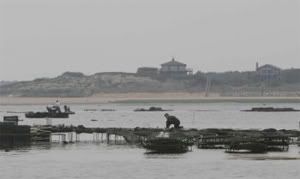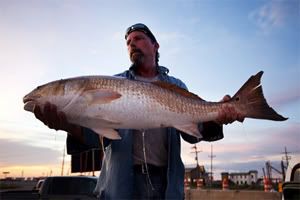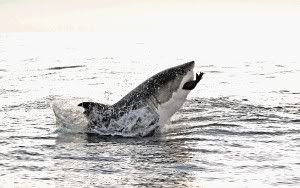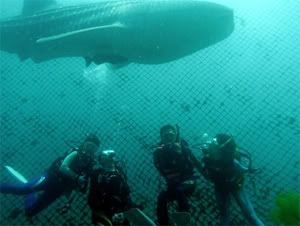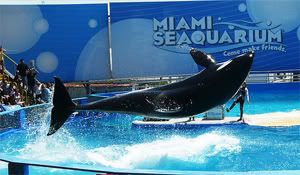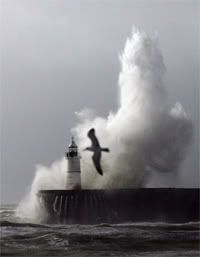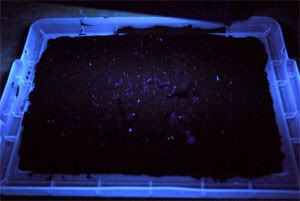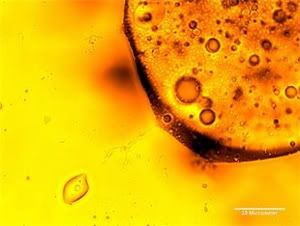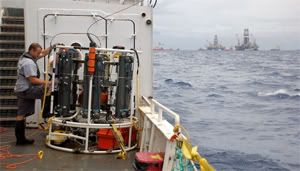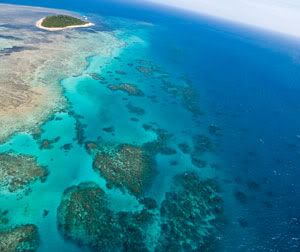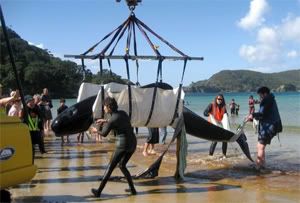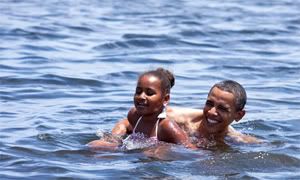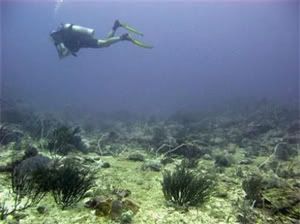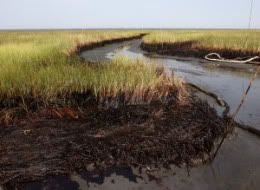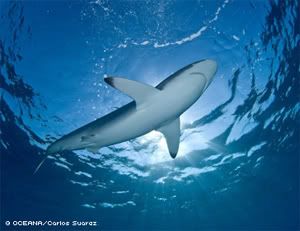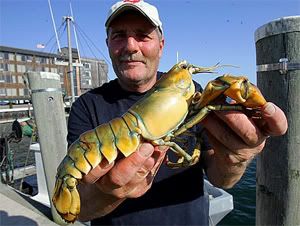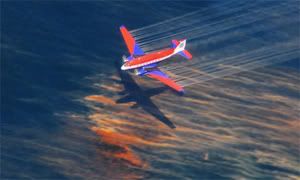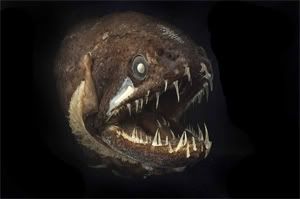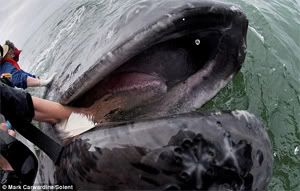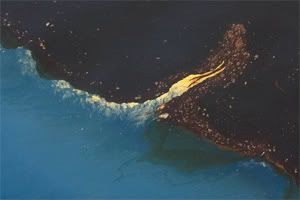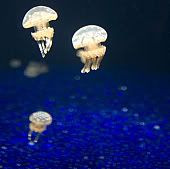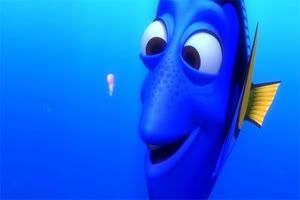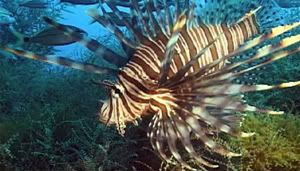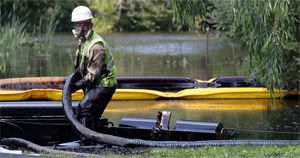This isn't really news, unless you're me. And still then, it's not so much new information as it is current events. Right now my dear boyfriend is sitting in a recompression chamber. He'll be there about six hours.
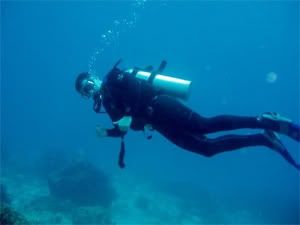
Ain't he cute?Why? Diving accident. My accident - not his. And now he has to pay the consequences, while I sit here and scan the symptoms to make sure I'm not suffering as well. So, while I'm at it, why don't I just inform all of my readers about "The Bends?" That's a great idea.
Decompression sickness aka "the bends" happens when dissolved gasses in your blood come out upon rapid depressurization and form air bubbles in your body. Basically, when you surface too fast after breathing pressurized air under pressure (water), bad shit goes down. Think of it as opening a fresh bottle of soda too quickly. Then think of that bottle of soda being you.
Once those air bubbles get into your system, a bunch of bad stuff can happen. This can range from fatigue, skin itchiness and rash formation to shortness of breath, dizziness, joint pain – even paralysis and death. In short - not something to mess around with. Symptoms usually appear immediately (literally, or within 12 hours), but can be delayed significantly (especially if air travel follows).
The name "bends" comes from the most common symptom of experiencing joint pain (where you bend) after surfacing. Applying pressure to the joint will sometimes alleviate pain as gas is released from the area, compared to normal joint pain where applying pressure will often cause an increase in pain. Pain in the legs and arms is also common, but less so. The pain usually begins subtly, but will likely grow into a "deep dull ache."
The trouble we've been finding with diagnosing these symptoms is that many of these things can be attributed to other factors in play while scuba diving. Your skin may be itchy due to the salt water or a crappy rental wetsuit, you might have a cough due to the tank air drying out your mouth and throat, you might have a headache or abdominal pain for any old reason, and obviously you'll be exhausted because you were just scuba diving all day long.
Divers Alert Network (DAN) notes that the first symptom of the bends is often denial for this very reason.
So what happened? We surfaced too quickly. I surfaced too quickly. I didn't think he would follow me as quickly as I went up, but he did. I'm fine, for whatever reason; that fact that I had no air in my lungs, that fact that I'm female, pure luck. He's sick for whatever reason; the fact that he was still breathing pressurized air, the fact that he's male...hypochondria...?
Then we got on a plane, which was stupid. I was feeling fine, but I told him please PLEASE see a doctor before you step on that plane. But no, and here we are...
You're supposed to wait at least 12 hours after diving (one dive) before flying (more time for more dives). Why? Same reason. Underwater there is more pressure on you than at sea level. If you come up too fast, you get the bubbles, remember? Now go even higher, say 32,000
ft higher. Even pressurized air cabins are not at the same pressure as sea level. This makes more bubbles. The same symptoms, pain, and risks apply – but now they’re compounded.
So you've got the bends, what do you do? If your symptoms came on quickly, you will most likely be administered 100% oxygen while on your way to the nearest recompression chamber. If your symptoms came on gradually and then you got on a plane for a few hours and went to work for a week in spite of them, your girlfriend will probably make you call the damn dive clinic already and then you'll go to the hospital and jump in the recompression chamber anyway. Hope you brought a book, 'cuz you'll be in there a while.
Mild symptoms and a quick treatment have the best prognosis, but individuals vary and long-term damage is not uncommon.
So let's talk about prevention, since that's the only way to deal with this beast.
First of all, chill. Swim easily, breathe normally, relax, enjoy yourself. Don't over-exert yourself or push yourself too far. You'll use more air which means more gas will be diffused into your body. Follow your dive tables, computer and dive guide. These are the things put in place specifically for your safety. There is a danger in going too deep or staying too long. Always err on the side of caution. Individuals vary, so your body may react differently than your dive buddy's. Communicate with each other, make sure you're both okay. Use your decompression stops if you're diving deep enough to warrant them. You may want to incorporate a safety stop at 3 - 6 meters either way. Ascend slowly. Here's where my problem came in - and we're paying for it. Ascend slowly. If your equipment failed like mine did, remember to continuously breathe out upon ascent, and don't rise up faster than your bubbles. (I wasn't consciously thinking this, but it happened anyway. Maybe it's a natural reaction? Maybe my subconscious took over?) Respect your surface intervals if you're doing repetitive dives. Some gas will still be in your body even if you do everything right, so follow your dive tables and take a rest to blow off the rest of it. Try a quick nap, I find it quite lovely on a sunny boat. Wait before flying. I like to wait at least 24 hours. No worries means a pleasant flight. Smoking, being overweight and diving in cold water increases your risks - try to avoid these scenarios (although there's some really cool stuff in colder waters...no pun intended).
If you think you’re experiencing any symptoms of the bends, call the organization you dived with or your local dive clinic. Find the nearest recompression chamber, get checked out. Bring a book. Be more careful next time!
I’d like to add a personal note. This is kind of my fault. My response to failed equipment was instinctual rather than logical. I was drowning, I was scared. I made the decision to swim up and I didn’t think I would be chased so quickly. I didn’t expect to be chased at all, honestly. It was scary, and I’m still very new to diving. Everyone else I know has been on loads of dives and nothing bad has ever happened. I’ve been on six dives, and two of them have gone wrong for reasons out of my control. It’s not a very good ratio. When I got to the surface I thought that’s it – I’m done. No more diving for me, it’s not worth it. But I got new equipment, I went back down. I had a good time. I had to “get back on the horse,” so to speak. Diving is not scary in itself, but when the very thing that’s keeping you alive down there breaks, it is. So, I’m not really sure what lesson to take away from all of this. I don’t want to stop diving, but at the same time it seems like I’m having a bit of bad luck with it. I’m not sure what I would have done differently if given a second chance. I know what should have happened, but I’m not sure I had time to do anything differently.
I’d love some comments from more experienced divers on this entry. Suggestions, more info, experiences…Anything welcome.
More info on “the bends”:
WikipediaDivers Alert Network (DAN)National Association of Rescue Divers (NARD)
